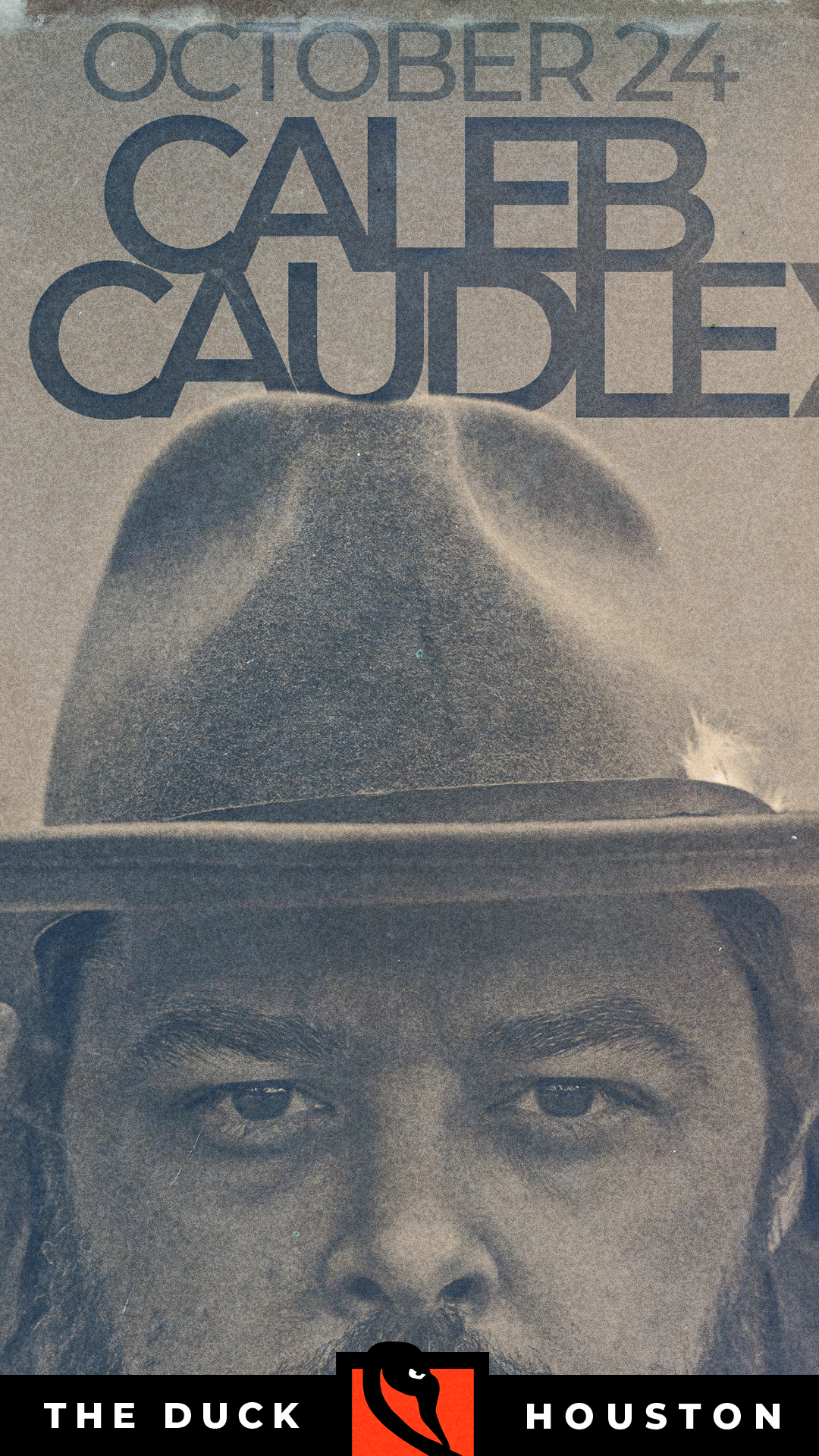

Caleb Caudle and the Sweet Critters- Late Show
| Ticket Type | Price | Quantity |
|---|

| Ticket Type | Price | Quantity |
|---|
 Just as the marbled salamanders emerge from under damp logs and leaves, the mushrooms—smooth, pearlescent ones and spongy morels—turn on like night lights glowing in the dark, and the long-horned beetles and regal moths begin buzzing.
Just as the marbled salamanders emerge from under damp logs and leaves, the mushrooms—smooth, pearlescent ones and spongy morels—turn on like night lights glowing in the dark, and the long-horned beetles and regal moths begin buzzing.
The fiddlehead ferns and trout lilies curl inward, a copperhead slowly swerves, and a fox steps into the moonlight looking for prey. It is here, in that restless middle of the night, under cover of darkness, where Caleb Caudle’s sixth studio LP Sweet Critters is nestled.
Through sometimes shadowy arrangements that creep and lurk, Caudle continues to mine both the brightest and murkiest corners of his imagination, finding that purest of points where tenderness and grit collide, inspired by musical heroes like Buddy Miller and Guy Clark, and mentors like Elizabeth Cook and John Paul White. It was White who Caudle tapped to produce Sweet Critters, along with Ben Tanner, at the duo’s Florence, Alabama studio Sun Drop Sound. “I was very excited to work with Caleb on this record.
Iʼve been a fan for years and count him as a friend,” White says of working with Caudle. “Heʼs a stellar songwriter, so I knew heʼd bring the goods. And he did.” The album features Allison Russell, Aoife OʼDonovan, John Paul White, and Caudleʼs own touring band.
These songs are a showcase of Caudle’s singular command of language. He sees the world through a hyperreal lens wholly unique to him, one that renders dank humidity “horsefly heat,” a moody sky “cast iron skillet” dark, or a loved one’s “wind chime of a smile.” For Caudle, details are the last frontier in a world where thousands of new songs are created every day.
As such, he weaves his intricate tales of redemption, sacrifice, forgiveness, and loss with the colorful threads of living, breathing characters and all the rich idiosyncrasies and ephemera that fill out their worlds. Caudle and his band have played Stagecoach, Cayamo, Luck Reunion, Mountain Stage, Merlefest, Americanafest, The Long Road (UK), AMAUK (UK), and recently supported Marty Stuart, Steve Earle, Hayes Carll, Elizabeth Cook, Brent Cobb, Charles Wesley Godwin, Ray Wylie Hubbard, and many more. Written by